In Winter Quarter 2016, the MA program in New Media Studies (NMS) will offer NMS 580: Markup and Text Encoding in the Humanities, a core course in the new certificate in Digital Humanities. Though the course has an NMS course number, the instructor, Prof. Antonio Ceraso, hopes it will also draw students from the MA in WRD and humanities disciplines such as English and history—all of whom can benefit from the new tools and perspectives the course offers.
Continue readingAuthor: Admin
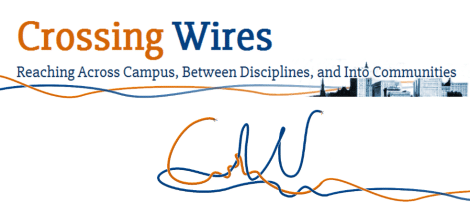
Conference Spotlight: Computers and Writing
Graduate students in NMS or WRD: Have you done research in a graduate class related to digital technologies or pedagogy? Would you like to share that research with a wider audience? If so, consider presenting at the annual Computers and Writing Conference! This academic conference will happen from May 19-22 at St. John Fisher College in Rochester, NY. The theme for 2016 — Crossing Wires: Reaching Across Campus, Between Disciplines, and Into Communities — challenges presenters to consider how new media and digital technologies cross boundaries and expand horizons, in both scholarship and pedagogy.
Continue reading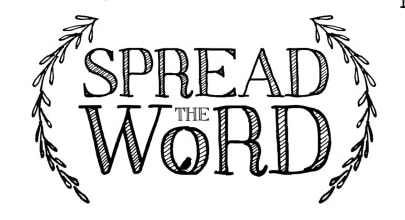
Spread the WoRD 2015: Meet the Panelists
We are excited to announce the three alumni speakers who will join us at the Spread the WoRD Conference on May 16! As panelists in a moderated discussion, Nicole Anderson, Liz Lane, and Adrienne Vitt will share about their time at DePaul and their work post-graduation. Nicole Anderson is a 2013 graduate of the MA in WRD program and a recipient of the Graduate Certificate in TESOL. She currently travels around the world as Associate Director of International Alumni Programs at the University of Chicago, and, before that, she applied her WRD knowledge developing curricula for non-profit professional organizations.
Continue reading
MA in WRD Course Profile: Writing in the Professions
In a job market where most job descriptions contain the phrase “strong writing skills,” what does it mean to be a good professional writer? This spring’s MA in WRD course, WRD 522: Writing in the Professions, will explore a variety of professional genres while also problematizing the concept of professional writing. The class is the first-ever online course offered by the MA in WRD program. Instead of weekly class sessions on campus, the course will include weekly writing deadlines, Google Hangouts and discussion forums to discuss readings, and online peer review.
Continue reading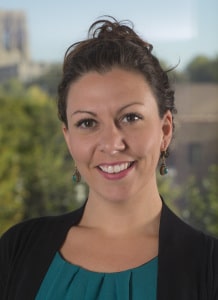
Wording It Your Way with Nicole Anderson
This quarter, we spoke with Nicole Anderson, an MA in WRD alum and a recipient of the Graduate Certificate in TESOL. Nicole works as the Associate Director of International Alumni Programs at the University of Chicago. She travels frequently, working with alumni communities in Europe, the Middle East, and Africa to build their networks and support the events they organize. We’re happy she took the time to share a little about her experiences!
Continue reading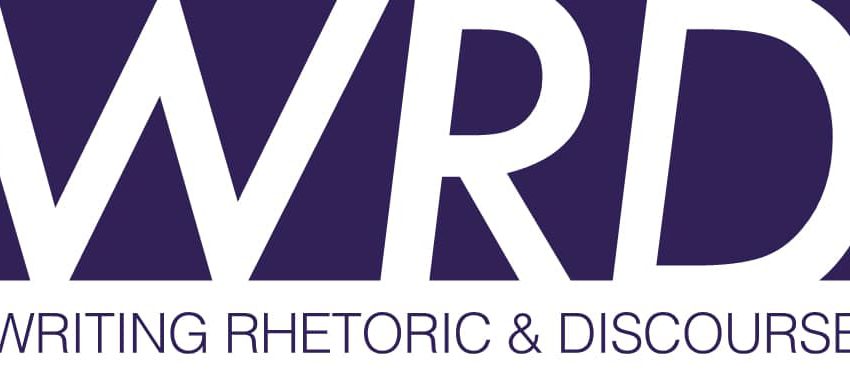
MA in WRD Course Profile: Feminist Rhetorical Practices
A new course offered in the autumn quarter of 2014 gave MA in WRD students the opportunity to recover and reinscribe women rhetors in the rhetorical canon. According to Professor Nicole Khoury, the special topics course, WRD 511: Feminist Rhetorical Practices, provides a necessary balance to more traditional classes in the rhetorical tradition. Of the course’s benefit to MA in WRD students, Professor Khoury says, the focus on gender discourse within rhetorical studies is an important one, particularly because women’s voices are often silenced and their contributions are overlooked in conventional courses on rhetoric studies.
Continue reading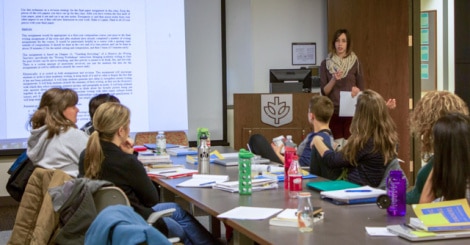
WRD 540 Prepares Future Writing Teachers for the Classroom
How do people learn to write? And how can teachers best facilitate this learning? This quarter, MA students in Professor Darsie Bowden’s course, WRD 540: Teaching Writing, have been exploring the answers to these questions. Bowden explains that the course aims to bring together teaching practices and the theories that inform them. Her students have had the opportunity to design their own activities and assignments, often collaboratively, and then to “teach” these lessons to their classmates.
Continue reading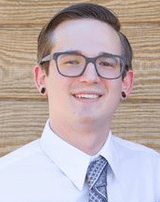
Intern Beat: Russell Wojcik, BA in WRD
We recently spoke with Russell Wojcik, a 2014 BA in WRD graduate who participated in two internships during his time at DePaul. He worked as an editorial intern at Wagstaff Worldwide PR and as a blog writer for Newman Realty, receiving academic credit for both through his enrollment in WRD 398, part of WRD’s professional internship program. Since graduation, Russell has relocated to Phoenix and now works for an online travel company as a Content Strategist and PR Coordinator, a position that he says uses many of the skills he developed and honed as an intern.
Continue reading
Portfolio Workshop This Thursday!
Do you need to build an online portfolio? Whether you’re applying for jobs, polishing your resume, or simply completing a portfolio class assignment, the WRD and NMS Grad Assistants are here to make your job a little bit easier. Stop by the WRD Invention Lab (SAC 302) this Thursday, November 13, from 5:00-5:50 pm to learn more about portfolio platforms and best practices. The workshop will also review sample portfolios of recent graduates to see how they best highlighted their skills and abilities.
Continue reading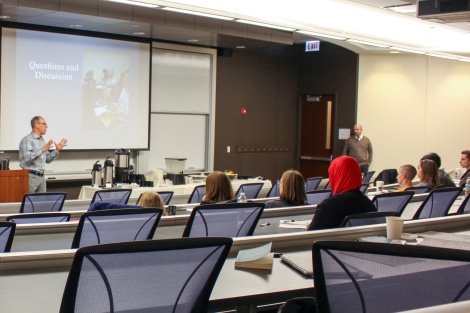
Event Review: Stuart Selber on “Teaching and Learning in a Digital Age”
On October 21, Dr. Stuart Selber presented “Teaching and Learning in a Digital Age: Agents, Infrastructures, Pedagogies” to WRD students and faculty. In attendance at the event were students from both the WRD Proseminar and the NMS Proseminar, who have been reading Selber’s monograph Multiliteracies for a Digital Age. In his talk, Selber explored the ways current technologies set the social scene for teaching writing, rhetoric, and discourse to students at colleges and universities. Selber began by discussing commonly accepted characteristics of today’s students and the technologies and infrastructures that inform their reading and writing practices. He emphasized that procedural
Continue reading